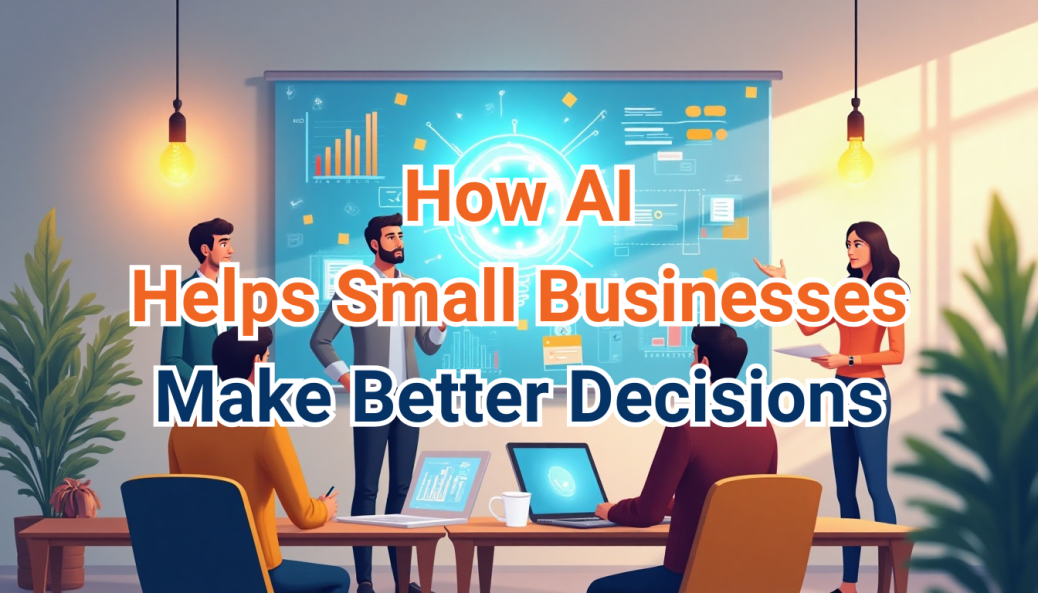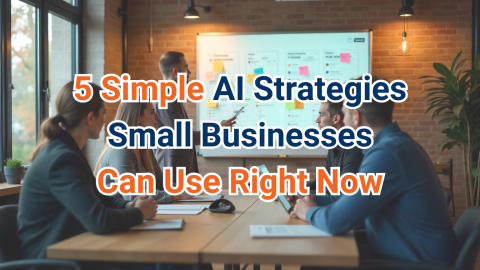Running a small business often involves making dozens of decisions every day—from marketing choices to budgeting, customer interactions, and hiring. But with limited time and resources, how can you be sure you’re making the right calls?
That’s where AI decision making for small business comes in. AI tools are now helping business owners make faster, smarter, and more informed decisions—without needing a data science degree.
Let’s look at how this works in practice.
The Challenge: Too Much Data, Too Little Time
Small businesses now have access to more information than ever—website analytics, social media metrics, customer data, and financial reports. But reviewing and interpreting that data can be time-consuming and overwhelming.
AI steps in to:
- Analyze large sets of data quickly
- Spot trends or problems you might miss
- Recommend actions based on patterns
In short, it takes the guesswork out of business management.
1. AI for Financial Decisions
Platforms like QuickBooks and Zoho Books use AI to categorize transactions, alert you about spending trends, and suggest budget improvements.
Need to know if you can afford that equipment upgrade or hire? Your AI-powered finance dashboard has the answer in real time.
2. Customer Insights That Drive Strategy
Tools like Pendo or Survicate use AI to turn customer feedback into actionable insights. You’ll know:
- Which products are driving loyalty
- What features need improvement
- Why certain customers are churning
This helps you make product, pricing, or marketing decisions based on real behavior—not assumptions.
3. Sales Forecasting and CRM Smarts
Customer Relationship Management (CRM) tools such as Zoho CRM and HubSpot now use AI to:
- Predict which leads are likely to convert
- Recommend next best actions
- Spot declining customer engagement early
For example, AI can tell you, “This lead has a 72% chance of closing this month,” based on past behavior—helping you prioritize efforts.
4. Inventory and Supply Chain Optimization
If you sell physical products, platforms like Katana and Cin7 can use AI to:
- Forecast demand
- Suggest when to reorder
- Optimize delivery timing
This prevents overstocking or missing sales opportunities due to poor planning.
5. Marketing Recommendations
AI-powered platforms like AdCreative.ai or Crayon can help your business:
- Choose the best headlines or images
- Optimize campaign budgets
- Analyze competitor ads in real-time
Instead of gut instinct, your decisions are backed by what’s statistically proven to work.
What AI Doesn’t Replace
AI can support you—but it doesn’t replace your judgment. You still decide which product to launch or whom to hire. AI simply gives you better tools and visibility so you can move faster and with more confidence.
Final Thoughts
By using AI decision making for small business, you’re no longer relying on hunches. You’re using hard data—processed at speed—to guide growth, reduce risks, and focus your energy where it matters.
Even better, most of these tools are plug-and-play, affordable, and require no tech skills. Smarter decisions are now within reach for any business, not just big corporations.





